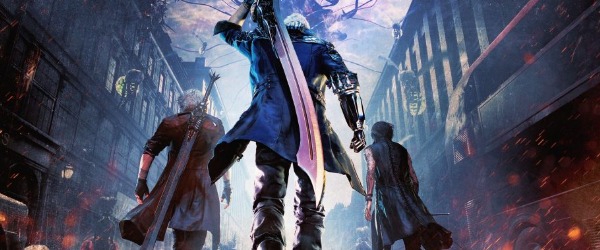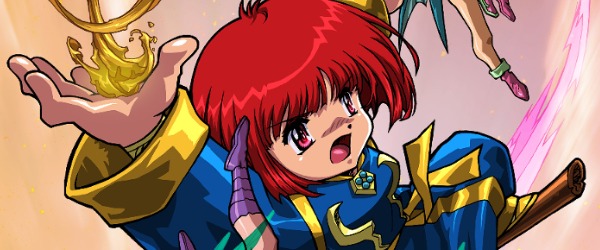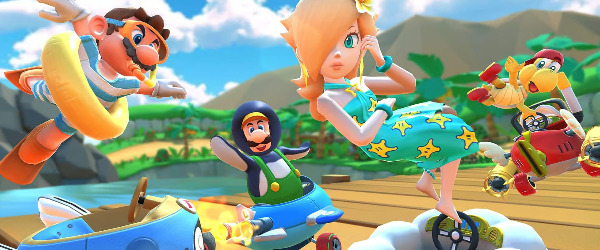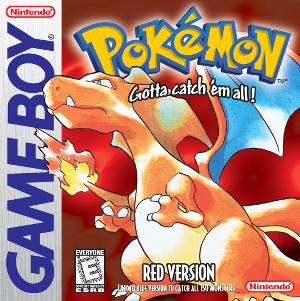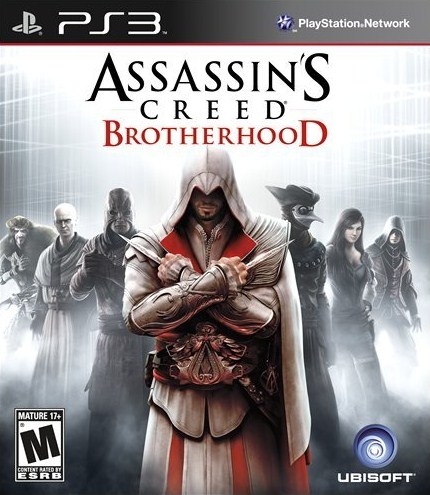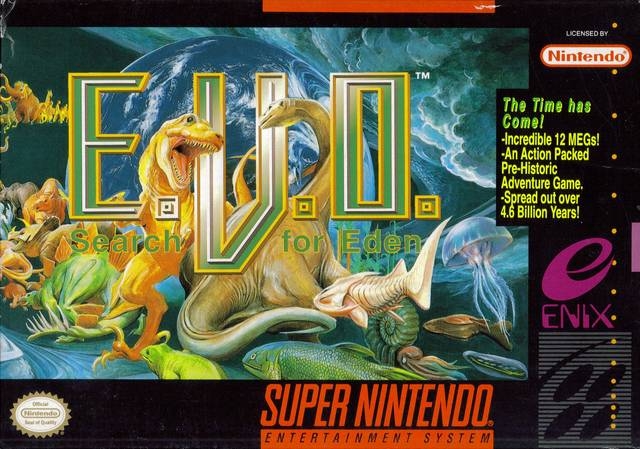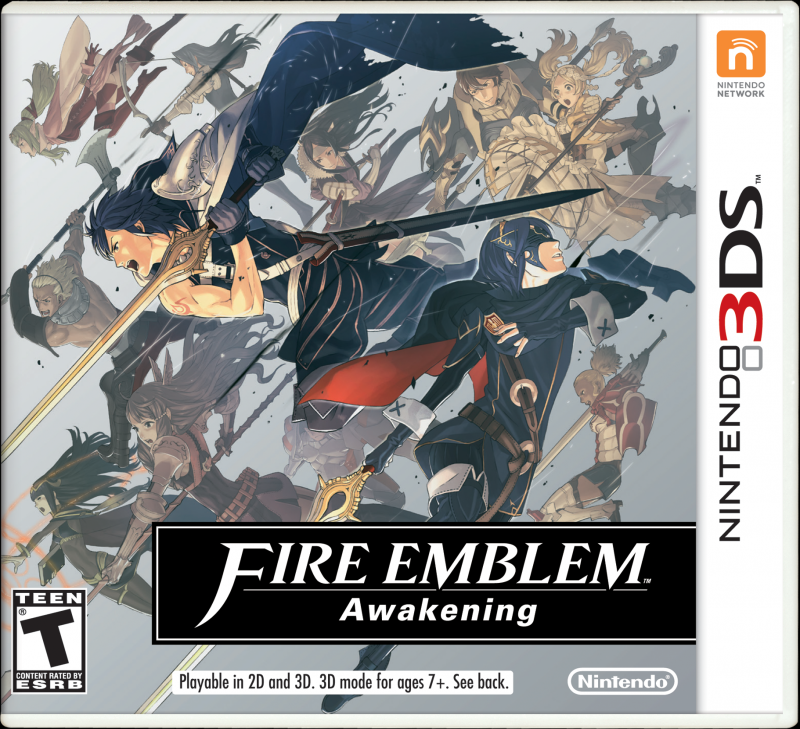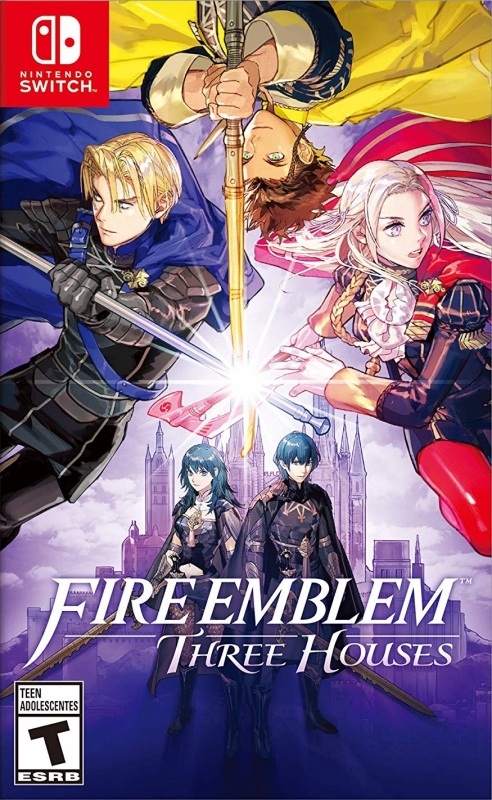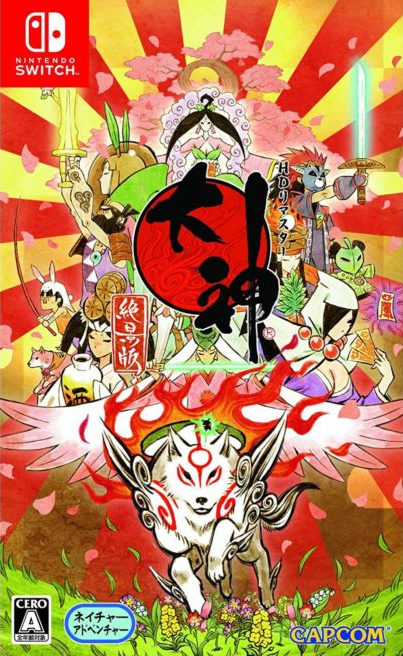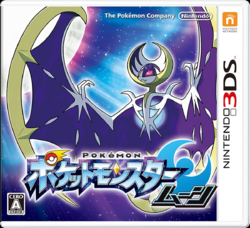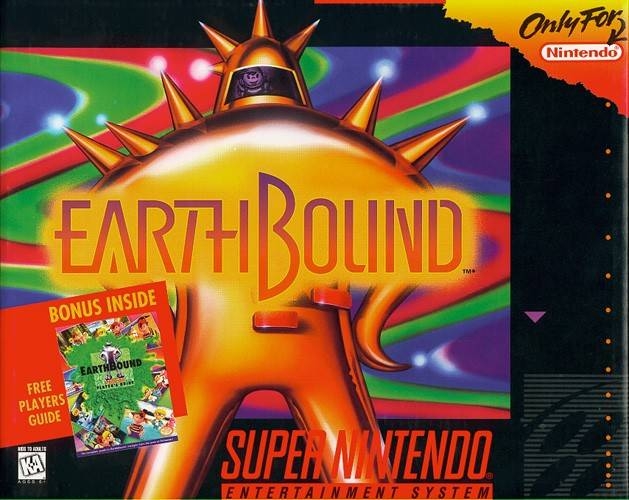
VGChartz's Top 50 Video Game Composers (20-16) - Article
by Taneli Palola , posted on 08 December 2019 / 5,051 ViewsIt's time to start talking about some of the absolute best video game composers of all time, as we get into the top 20 of this countdown. However, before we get back to the list proper, here are a few honourable mentions that just barely missed the top 50:
Yoko Kanno
A composer who is probably better known for her anime scores, Yoko Kanno also has an extensive library of video game scores to her name from the mid-1980s onwards. Her most well-known video game scores come from the Nobunaga's Ambition series and from Ragnarok Online 2. Check out 'Din Don Dan Dan' (yes, that's the song's title) from the latter.
Marcin Przybylowicz
I was honestly quite surprised Przybylowicz didn't make it into the top 50 considering he's responsible for a lot of the music in The Witcher II, The Witcher III and its expansions, Hard West, Phantom Doctrine, as well as the upcoming Cyberpunk 2077. Have a listen at 'Shaelmaar' from The Witcher III: Blood and Wine.
Hiroki Kikuta
Rarely are video game composers defined by their first actual score, but that's exactly what happened to Kikuta with Secret of Mana. Since then he has composed music for Trials of Mana, Koudelka, Shining Hearts, SoulCalibur V and, most recently, Indivisible, but he will always be best remembered for his music in Secret of Mana. For something a little different here's 'Cyclic Soul' from Indivisible.
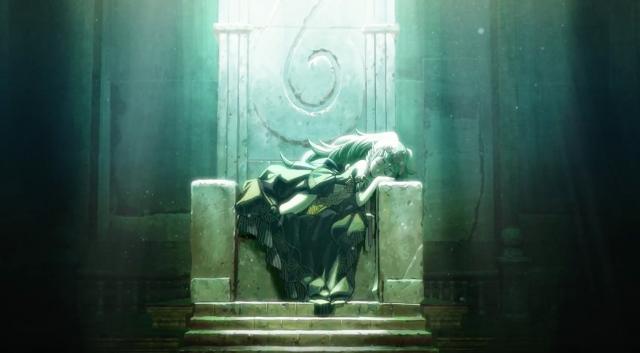
Next time I'll cover a few more honourable mentions, but for now let's get started with the top 20.
#20
Junichi Masuda
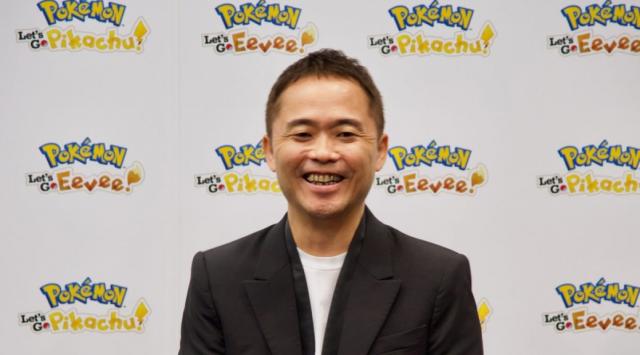
The composer that starts off the top 20 is none other than Junichi Masuda, a long-time member and a founder of Game Freak, where he has worked since the studio's inception in 1989. In the following 30 years Masuda has effectively worked on every single game the studio has ever made, either as a programmer, composer, director, or producer. But, of course, it is his work as a composer that most people probably know him for.
Masuda's first video game score was for a fairly little known NES title called Mendel Palace, followed by games like Yoshi (Mario & Yoshi in Europe and Australia), Mario & Wario, and Pulseman between 1990 and 1994. However, it was in 1996 that both Masuda and Game Freak in general hit the jackpot with the release of Pokemon Red & Blue for the Nintendo Game Boy. Ever since then Masuda's career has been more or less intertwined with the franchise.
In fact, since the release of Pokemon Yellow back in 1998, Masuda has not composed music for any game that isn't part of the Pokemon franchise. He has served as producer or director for a few other titles, such as HarmoKnight, Tempo the Badass Elephant, and Little Town Hero, but his only works as a composer over the last 21 years have been for various Pokemon related releases.
In recent years Masuda has been slowly phasing himself away from composition duties and letting other people take care of that side of Game Freak's video game development. His last work as composer, as of 2019, was for Pokemon Sun & Moon in 2016, after which he has acted primarily as a producer on various Game Freak releases. In fact, Pokemon Sword & Shield marks only the third time since 1998 that Masuda didn't contribute at least some music to a new mainline Pokemon game. The other two games he didn't compose music for in that time were Pokemon Emerald in 2004 and Pokemon Black 2 & White 2 in 2012.
Junichi Masuda may not be a household name, even when it comes to video game composers, but his work in the Pokemon series over the last 25 years has ensured that there are very few people who play video games that haven't heard his music at one point or another. For many, the music in the Pokemon games is intrinsically linked with their childhood, and we can thank Junichi Masuda for creating such excellent and iconic pieces of music for us to enjoy.
#19
Rei Kondoh
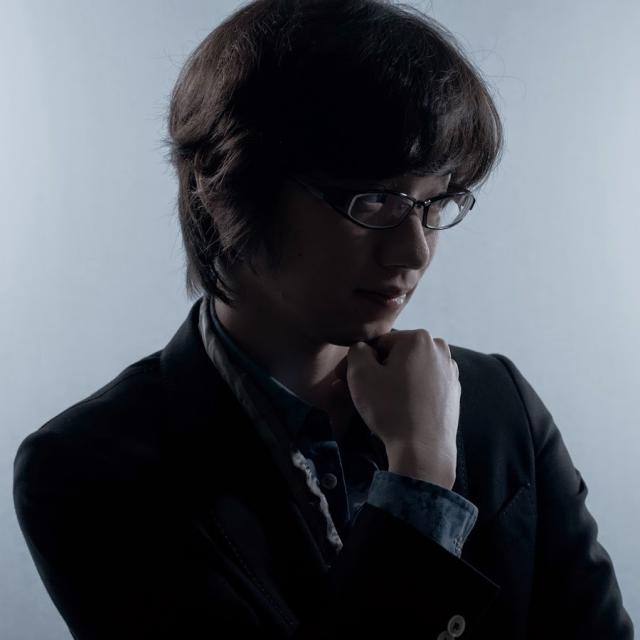
As we get deeper into this countdown you might start to notice that most of composers that made it into the top 20 have at least 20 years of experience working in the video game industry. The only exception to this in the top 20 is Rei Kondoh, whose first experience as a video game composer was in 2006 when he served as one of the main composers on Clover Studio's masterpiece – Ōkami. Since then he has established himself as one of the most talented composers working in the video game industry.
Kondoh has worked together with a number of different video game companies, but his most notable work can be found on games made by either PlatinumGames, Capcom, or Intelligent Systems. However, his first works following Ōkami included composing six pieces of music for Capcom's Devil May Cry 4 in 2008, as well as the score for Spectrobes: Origins in 2009. In addition, from 2006 onwards Kondoh has been one of the main composers in the Sengoku Basara series of video games, having worked on nearly every home console and handheld release in the series since Sengoku Basara 2.
Kondoh was one of several composers who created the soundtrack for PlatinumGames' over-the-top action game Bayonetta, for which he provided 20 tracks in total. He then worked as the sole composer on Capcom's Ōkamiden for the Nintendo DS, as well as on Nippon Ichi Software's rather poorly received Last Rebellion, both of which released in 2010. Over the next several years Kondoh continued to work together with both Capcom and PlatinumGames on numerous different titles, including Dragon's Dogma, The Wonderful 101, Bayonetta 2, and Star Forx Zero, among others
In 2012 Kondoh established a working relationship with Intelligent Systems and Nintendo, composing music for Fire Emblem: Awakening alongside Hiroki Morishita. Since then he has worked on the scores for Fire Emblem: Fates and the recently released Fire Emblem: Three Houses. Also, you can hear some of his work in Mario Party: Island Tour on the 3DS, as well as in Mario Party 10 on the Wii U.
Within the last decade Rei Kondoh has become arguably one of the most sought after video game composers working today. His work has been consistently excellent for almost 15 years now, from his contributions to Ōkami early on in his career, to his more recent work on games like Bayonetta 2 and Fire Emblem: Three Houses. If his career continues on this path he could very well become one of the most celebrated composers in video game history in the future. He certainly has the talent for it.
#18
Koichi Sugiyama
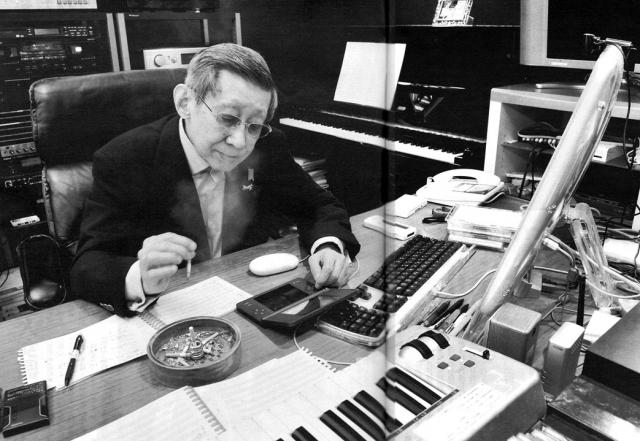
From one of the younger people on this list to its grand old man, Koichi Sugiyama. Sugiyama began his video game career in 1985, but by that time he had actually worked as a composer for nearly 20 years in film and television. However, these days he is undoubtedly primarily known for his work in video games, particularly those of the developer Enix/Square Enix, with which Sugiyama has stayed through his entire career.
Curiously, Sugiyama's first contact with Enix came about when he sent a handwritten letter to the developer commending the company for its shogi game from the early 80s. This eventually led to Enix asking him if he would like to compose music for its games. In 1985 a game called World Golf was released, featuring Sugiyama's first ever compositions for a video game. This was then followed by a game called Wingman 2 in 1986.
Naturally, Sugiyama's most enduring legacy is the music he has composed for the Dragon Quest series ever since its very first entry on the Nintendo Famicom/NES in April of 1986, just a month after Wingman 2. In the following years he has composed music for every single main installment in the series, as well as for numerous spin-off titles. In fact, since the mid-90s Sugiyama has worked almost exclusively on the Dragon Quest franchise, with a few minor exceptions. In total there at least 30 different games carrying the Dragon Quest name featuring his music.
Of course, with such a long career behind him, Sugiyama has composed music for some non-Dragon Quest games as well, though the number is surprisingly small to be honest. Many of these titles are quite low profile releases too, with some genuinely surprising games making the list. These include the likes of Derby Stallion 64, Jesus (yes, Jesus, and its sequel Jesus 2), and perhaps most notably E.V.O: Search for Eden, a game where the player guides a creature through over a billion years of evolution.
Sugiyama's legacy as a video game composer is indisputable, from being the first video game composer to record his music with a live orchestra back in 1986 (and in doing so setting a precedent for countless video game live concerts to follow), to effectively setting the template for most RPG soundtracks to follow for years to come with his work on the Dragon Quest series.
#17
Jesper Kyd
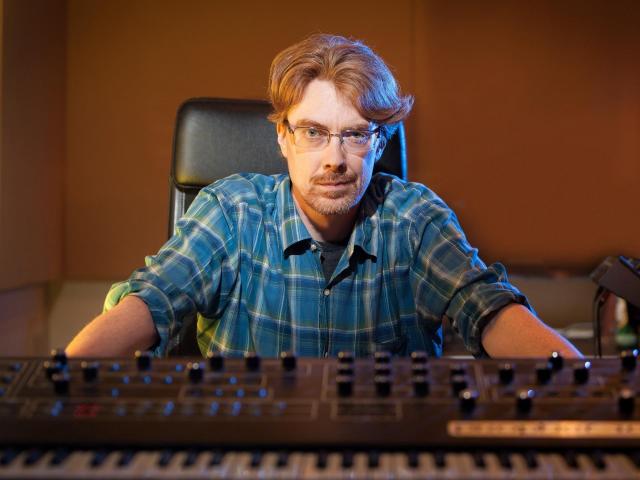
Jesper Kyd began his career as a video game composer at a very young age, with the first commercially released game featuring his music being released when he was only 18/19 years old. However, by that time he had already been working on the demo scene in Denmark for several years, before he moved to the United States and became a professional composer in the early 90s. Over the following three decades Kyd has worked with many of the biggest video game developers and publishers in the world, and composed music for some of the most successful video game franchises around today.
Much of Kyd's early work as a composer during the 90s was done as part of a developer called Zyrinx, which he helped found. The team also worked very closely with a publisher called Scavenger, leading to Kyd working on various other games for them as well over the ensuing decade. Some notable titles featuring Kyd's music around this time included the likes of Sub-Terrania, Red Zone, and Scorcher, all developed by Zyrinx, as well as titles such as Amok and the Mega Drive/Genesis version of The Adventures of Batman & Robin.
Kyd's reputation as a highly talented composer began to truly take off at the turn of the millennium, when he composed music for Bioware's MDK 2, which released in early 2000. Later that same year he created the entire soundtrack for IO Interactive's Hitman: Codename 47. Kyd would continue to work with IO for many more years, composing music for all of the Hitman games up until 2006's Blood Money, as well as for Freedom Fighters and the first Kane & Lynch game.
Then, in 2007, Kyd would compose the score for his highest profile project yet, when he was contracted to provide the music for Ubisoft's highly anticipated open world game Assassin's Creed. He would go on to compose music for the next three games in the series as well, with Assassin's Creed: Revelations being the last one he would work on. In addition, in 2009 he was one of several composers who worked on the music for Gearbox Software's Borderlands, and since then he has worked on every single game in the main series, including the recently released Borderlands 3.
Over the last decade Kyd has composed music for a wide variety of other high profile western games too, including Forza Motorsport 4, State of Decay, Warhammer: End Times – Vermintide, and its sequel Vermintide 2. Kyd's talents as a composer are in constant high demand within the industry, and we'll likely get to hear a lot more of his music in games both big and small for many more years to come.
#16
Hirokazu "Hip" Tanaka
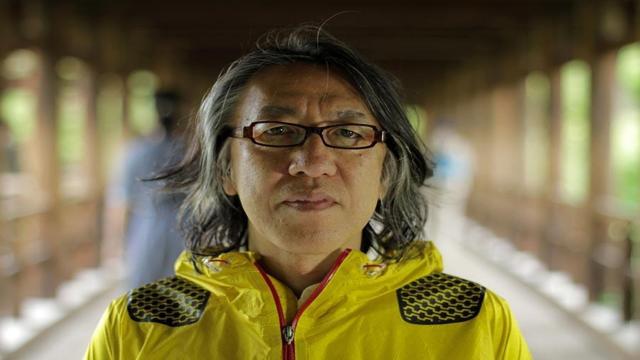
When it comes to Nintendo's in-house composers there is one very familiar name that often rises above everyone else, and we'll talk about him in a later part of this countdown, but behind him there were a number of other extremely talented people creating music for various Nintendo games during the 3rd and 4th generations of consoles. One of the most prolific and highly skilled out of all of them was Hirokazu "Hip" Tanaka, who is responsible for the music in many of Nintendo's most beloved releases from the 80s and early 90s.
Tanaka joined Nintendo in 1980 as a sound designer, where his first project was creating the music for an arcade game called Space Firebird, for which he also constructed a specialized sound chip. Following this he would often work on multiple different games every year, composing music and designing the sound effects for them, often all by himself. Among these games were classics like Donkey Kong (sound effects only), Donkey Kong Jr., and Popeye. Once the Famicom/NES released in Japan in 1983, Tanaka's work began to reach an even wider audience.
For the latter half of the 80s Tanaka was primarily working on various NES games, composing music for the likes of Wild Gunman, Duck Hunt, Wrecking Crew, Balloon Fight and, most notably, for both Kid Icarus and Metroid, and that's not counting even close to all of his credits. At the tail end of the decade he was one of a handful of people at Nintendo who worked on developing hardware for the upcoming Game Boy handheld, which then quickly led to him composing music for a number of Game Boy titles, including Super Mario Land and Tetris in 1989.
Before the end of the decade Tanaka worked on one more interesting title, that being the original Mother for the Nintendo Famicom. Unfortunately, despite a translation having been created, the English version the game wasn't released in the west until 2015, when it was put on the Wii U Virtual Console. He followed that up with another excellent score for Dr.Mario in 1990, but soon after that his work as a composer became increasingly rare. He was one of several people who worked on the music for Mario Paint, and his final major work as a composer was on the SNES cult classic Earthbound, which to be fair was another very memorable score.
The last thing Tanaka worked on while still at Nintendo was the Game Boy Camera, but due to Nintendo's policy of not allowing its employees to work for other companies he left Nintendo and joined the video game developer Creatures in 1999, becoming the company's president in 2001, a position he still holds today. Tanaka hasn't worked as a composer for much of the last 25 years, but his legacy in most people's eyes will likely always be the music he created for numerous classic Nintendo games during his two decades working for the company.
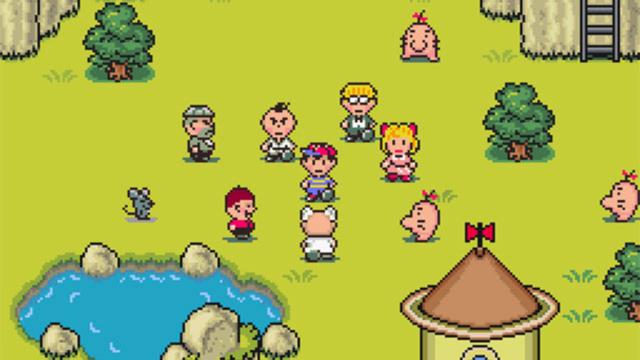
That's the end of part 3 of the countdown. What are your favourite pieces from these five composers? Next time we'll cover another five supremely talented composers and feature a few more honourable mentions as well.
More Articles
I had forgotten about how good EVO's soundtrack was.
Koichi's songs in this list were both fantastic. I completely forgot about that flying music in DQVIII!
Both Sukiyama and Tanaka were on my list. Tanaka's music is what I would characterize as "quality but quirky". Earthbound is a great example. Lately I have been listening to different arrangements of the opening to NES Metroid (or Zero Mission which is the same music). That is very unusual too, but I really love it.
I'm not seeing Noriyuki Iwadare yet, Hopefully he's in the top 15 or all hope is lost.
No, unfortunately not. I asked it during the top 40 - 50's and I think Trunk answered he hasn't made it into the Top 50. Lunar SSS Opening is still my favourite video game opening...
I answered it, since I'm the one putting the list together. Iwadare unfortunately didn't get a single vote from anyone, which I was honestly quite surprised by. He just missed my top 10, but 1 or 2 points from me wouldn't have been enough to get him into the top 50.








